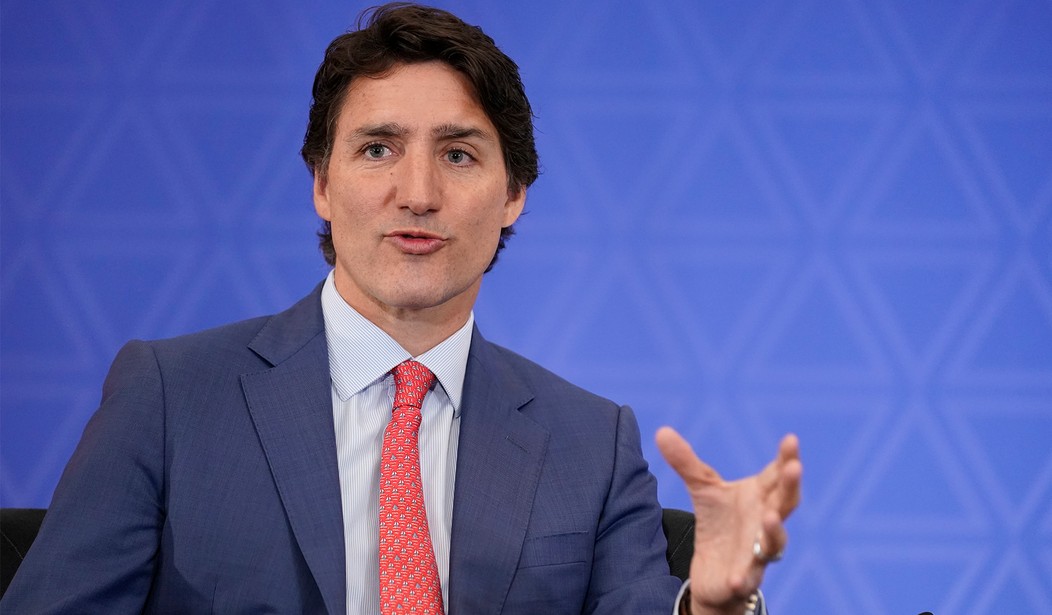The latest polling is a big news item in Canada today. Justin Trudeau’s popularity has been sinking for weeks but new polls out this week suggest he’s really in trouble. One poll has him underwater by 30 points.
With only a week to go before Parliament reconvenes, a pair of devastating polls are showing Prime Minister Justin Trudeau with near-unprecedented rates of disapproval.
Younger people, who were key to Trudeau’s 2015 election victory, have now broken for the Conservatives at rates that haven’t been seen since the 1980s. A new Abacus Data survey found that Millennials were nearly twice as likely to vote Conservative as Liberal. And the Tories even led among the younger Generation Z; Canadians aged 18 to 27 favoured the Conservatives at a rate of 32 per cent against 24 per cent for the Liberals.
And according to new numbers from the Angus Reid Institute, Trudeau now has an approval rating of just 33 per cent, against a disapproval rating of 63 per cent.
Why is this happening now? One of the main reasons seems to be unhappiness over inflation and what it has done to the Canadian housing market.
The Abacus Data poll found that “rising cost of living” was by far the number one issue for Canadians under 40.
A reader recently wrote this in response to a story in the Globe and Mail:
I am not like a letter-writer who is a professor emeritus of urban planning. I am a married man in my late 30s whose prospects of owning a home have been chewed up and spat out by a generation of leaders and experts.
To me, they remain blind to the hardships brought about by their policies. I thank them for good intentions, but suggest they take a hard look at where such thinking and advocacy has brought us.
Andrew Coyne thinks it’s more than just economic doldrums:
…while inflation and housing are clearly top-of-mind issues for many Canadians, I suspect the public funk is broader and deeper than that. It is what these issues represent, I suggest, as much as the direct pocketbook impact, that is taking its toll on Liberal support.
That line of Mr. Poilievre’s – “everything seems broken” – gets at it. But it’s less a sense of things being broken than of a country that is adrift, under a government that gives every appearance of being asleep at the wheel.
An maybe it’s just that people are sick of Justin Trudeau’s tiresome act.
What had since been revealed, in both the Prime Minister and the government he leads, is a disquieting combination of cynicism (think of all those broken promises, or the endless ethical imbroglios), naiveté (think of its dealings with China, though that may be being too charitable) and doctrinaire ideology (especially over identity issues). It is easy to think of governments that were guilty of one or the other of these. It is quite unprecedented for a government to be so redolent of all three at once.
The government that had come to power promising to reverse all of its predecessors’ abuses of power soon embraced all of them. The Prime Minister who made such show of his commitment to racial and gender issues was found to have serious failings of his own on both fronts – almost as if the whole social-justice campaign had been a con, intended to shield him from the inevitable accusations.
Trudeau and his wife announced they were divorcing earlier this month. The general thought at the time seemed to be that as long as the separation seemed amicable it might even help Trudeau a bit as people would feel sympathy for him.
Andrew Enns, executive vice-president at Leger, said it’s far too soon to gauge the political implications of the break-up, at least until more is known about the circumstances.
“If it was mutual, if they sort of just grew apart over the stress of the job, then this maybe doesn’t have any negative impact, and maybe even a little positive,” the pollster said…
“They weren’t shy about showing the family unit,” he said. Enns cited Trudeau’s infamous 2018 family vacation to India, where, despite multiple political controversies, smiling photos of Trudeau, his wife and three kids enjoying the trip projected the image of being a close-knit family.
It doesn’t seem to have worked out that way. I’m not suggesting that people are saying they don’t like Trudeau because of his personal life. I doubt that’s the case. Still, I wonder if something about the divorce doesn’t give people a little more freedom to dislike the guy for other reasons. Maybe it’s just a moment to reassess the national relationship. If Trudeau’s wife can move on, why can’t the rest of Canada?
Finally, the other possibility here is that people are just warming up to conservative leader Pierre Poilievre. The left’s strategy has been to portray him as a scary extremist and that doesn’t seem to be working anymore.
Update: Bonus clip of Poilievre from today. He makes a pretty good case.








Join the conversation as a VIP Member